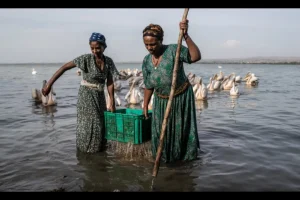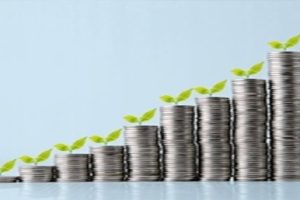Covid-19 has had profound implications for the “role of business in society”. One of them is the pandemic’s effect on companies’ sustainability strategies. These are efforts to avoid companies’ harmful impacts on the environment and communities, and to enhance the positive impacts.
The pandemic may cause companies to cut costs and restrict their sustainability strategies. Alternatively, the crisis may focus managers’ attention on the dependence of their business on broader social systems. And it may bring about a willingness to collaborate to address shared problems.
We explored this issue by studying how 25 companies responded to the pandemic in four African countries: Kenya, Mauritius, Nigeria, and South Africa. We discovered that crises could either restrict or strengthen companies’ sustainability efforts. Their reactions depended on how different contingent factors interacted with each other.
Our findings have practical relevance for managers, investors, policy-makers, and initiatives such as the United Nations Global Compact. The Global Compact enrolls companies to support the Sustainable Development Goals.
It is useful to recognize when and why some companies restrict their sustainability efforts in response to a crisis. This can help design support measures to avoid such restriction going too far. It is also useful to know why other companies actually strengthen their sustainability efforts in a crisis.
Innovation or rigidity
There is long-standing interest in whether crises and threats constrain or enable organizational change and innovation. Some have argued that crises lead to innovation. That’s because they motivate managers to address problems, take risks, and learn.
In contrast, others have argued that a crisis will lead to a rigid organisational response. Managers restrict information processing, emphasise control, and conserve resources. Such constricting responses have been highlighted by studies of companies’ sustainability responses to crises such as the 2008 financial crisis.
A great deal of research has tried to identify the factors that influence whether organizations innovate or become more rigid in a crisis. For example, an innovation response is probably more likely when the crisis is not too severe, or if the organization has some resource slack.
However, the literature is inconclusive, especially for a crisis as multifaceted as Covid-19. We argue that this is partly because the contingent factors interact with each other. These interactions need to be better understood.
A configurationally approach
To study the interaction effects between different factors that shape organizational crisis responses, we used Qualitative Comparative Analysis. This allows us to systematically compare our case study companies using both qualitative and quantitative data.
Our analysis helped us identify five configurations. Two of them contribute to companies strengthening their sustainability efforts in response to the crisis. Three of them give rise to restricting responses.
Strengthening responses
We identified two explanations for strengthening responses. “Building on strengths” characterized those companies that had a strong sustainability commitment before the crisis. They also had some resource slack.
These companies were able to use their strengths to expand their sustainability efforts. These strengths included well-supported sustainability managers with skills and diverse relationships that could be used during the crisis.
But we also found some companies adopted a strengthening approach even though they did not have a mature sustainability strategy. They were motivated by a lack of governance stability and effectiveness in their national context. This was worsened by the crisis. We called this “governance gap-filling”.
In some cases, companies tried to fill governance gaps because of humanitarian concerns. In others, companies’ own operations were constrained by such gaps. For example, the benefits of solar power were shown during the crisis for one of our case study companies, because the Nigerian state struggled to ensure reliable power or security for diesel refueling teams.
Restricting responses
We identified three explanations for “restricting” responses. The “hard hit” explanation applied to companies that were directly and severely affected by the crisis, and did not have resource slack to cushion the blow. This included companies especially in the travel and tourism sectors.
“Low-road business-as-usual” dynamics applied to companies that had low sustainability maturity and also limited resource slack. They had little motivation or ability to expand or even maintain their sustainability commitments.
Finally, “bunkering down” explains how some companies restricted their sustainability efforts because they saw in the crisis an increase in unpredictability in their operating context. This occurred in those countries where the governance context had been deteriorating. So, declining governance quality combined with the crisis to motivate managers to restrict their sustainability efforts.
Contributions and implications
Our analysis extends understanding of organizational responses to crises in three ways. First, we show the benefits of considering contingent factors together – not independently of each other.
Second, we highlight the role of governance context in organizational crisis responses. This includes the stability and effectiveness of governance at one point in time. It also considers changes in governance quality over time.
And third, our findings show how prior sustainability investments allow companies to “build on strengths” when responding to a crisis. This creates benefits for the companies as well as stakeholders – at a time when they need them most. This should provide further incentive for managers, investors and others to motivate for sustainability investments when times are good.
(Source: The Conversation)
THE ETHIOPIAN HERALD FRIDAY 20 JANUARY 2023




